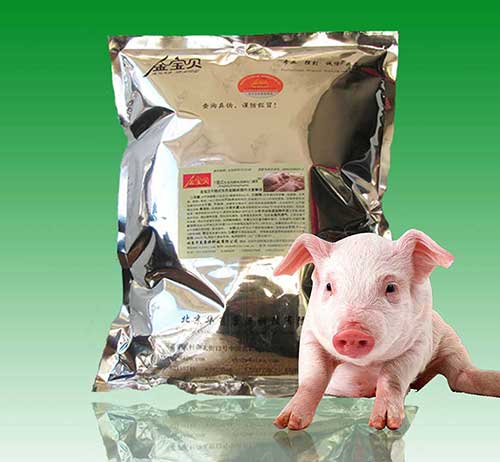Dry spread fermentation bed The pig breeding technology in microbiological fermentation beds is based on micro-ecological theory and biological fermentation theory. It selects functional microbial species from soil or samples. Through the cultivation of specific nutrients, indigenous microbiological species are formed. The original species is mixed with sawdust at a certain proportion. Crust, sawdust and other materials are then controlled under certain conditions to allow them to be fermented into dominant communities and finally made into organic litter. The litter is laid in a culture greenhouse to a certain thickness of the fermentation bed, so that the litter and pig manure are fully mixed. Through microbial decomposition and fermentation, the organic matter in the pig manure is fully decomposed and converted, and eventually reaches the degradation level. , digestion of pig urine, except for the smell and harmless purpose. There is no wastewater discharge during the whole breeding process, and the fermented mattress material is sold as organic fertilizer after being eliminated. According to the location of the fermentation bed, microbial fermentation bed breeding can be divided into two modes: indoor fermentation bed (also known as in situ fermentation bed) and outdoor fermentation bed (also known as ectopic fermentation bed). Ectopic microbial fermentation bed culture refers to the separation of pigs and manure from fermentation, pigs do not contact with litter, cultured sheds built outside the litter fermentation chamber, litter in the fermentation room, pig farm waste collection using uniform submersible pumps Fertilizer treatment method for bio-fermentation on litter. The new cultivation method of the golden babe dry-spreading ectopic fermentation bed has solved the problems faced by the breeding industry: I. Protecting the environment The shed is odorless, zero-emission, and solves the problem of pollution in the breeding enterprise from the source. II. Resource conservation You can make use of sawdust, rice hulls, straw and other agricultural and forestry products in all parts of the country to produce waste, to recycle resources and reduce agricultural waste. III. Animal welfare and food safety Compared to the current practice of cultivating pigs on the concrete floor (not only pigs but also animals such as chickens, ducks, geese, and snakes, but with different animal habits, there are differences in the construction of fermentation beds, the same below), the pigs are again given organic litter. Life is more comfortable and it can be arched, which is more in line with the nature of the pig. The function of the litter is beneficial to microorganisms, which suppresses harmful microorganisms in the environment and in the digestive tract, improves the immunity of pigs, greatly reduces the amount of antibiotics used, greatly improves the quality of pork, and provides consumers with healthier things.
"Steroids are a general term for a large group of derivatives widely distributed in the biological world, which can also be called steroidal or steroidal compounds. Steroid hormones are mainly synthesized and secreted by various parts of the body, and a small part can be synthesized artificially. They play an important auxiliary role in the functional activities of organs, tissues and cells of the body. Steroid hormones mainly include adrenal cortical hormones secreted by the adrenal cortex and gonadal secretion of sex hormones, when taking a large number of steroid hormones, will produce swollen face, nausea and other side effects
steroids powder,corticosteroids,estrogen and progesterone Shaanxi YXchuang Biotechnology Co., Ltd , https://www.peptide-nootropic.com
Dry-sweeping fermentation bed strain suitable for ex situ fermentation bed
